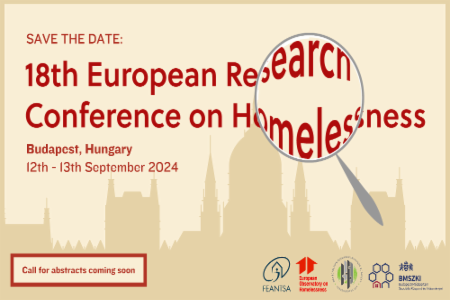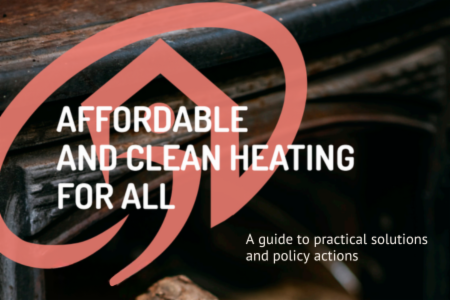Report:
Affordable and Clean Heating For All
Download the Report here: {Desktop}
The role of solid fuel heating in Europe is crucial, with a significant share of households relying on firewood or coal to heat their homes, often through inefficient individual stoves. These solid fuel heaters frequently serve as the primary solution for the lowest income groups, particularly those residing in the least performing dwellings. On one hand, solid fuel heating represents flexibility, independence from utilities, and comfortable warmth. However, it is a time-consuming method of heating, requiring physical strength, and often necessitates tending to small stoves throughout the night. While firewood is the major contributor to renewable energy targets, solid biomass combustion, such as firewood, contributes to outdoor air pollution, leading to violations of EU air quality requirements. Inadequate heating infrastructure also emits significant fumes indoors, posing severe health risks. Moreover, the already increasing prices of firewood face a major surge during energy crises, yet firewood users have not benefited from consumer protection measures.
Coal users' needs are gradually being recognized by just transition policies, as coal is evidently a fuel slated for phase-out in the near future. However, policymakers and implementers still have a long way to go in delivering clean and affordable heat to all solid fuel users. The vast majority of dwellings in Europe are old and fall far short of current energy efficiency standards, requiring large amounts of energy for heating. This often leads to dedicating a high share of disposable income to energy costs or undesirable compromises such as underheating homes in winter or heavy reliance on low-quality fuels.
Given the multifaceted complexities surrounding solid fuel heating, including structural issues and the low performance of homes where solid fuel heating is prevalent, along with the lower financial capacity of households to cover higher renovation costs compared to better-performing homes, FEANTSA organized two workshops to explore heat transition options for solid fuel users. This report summarizes the findings of these workshops.
The energy crisis triggered by Russia’s invasion of Ukraine in early 2022 has drawn political attention to the growing number of households suffering the economic and social impacts of energy vulnerability, accelerating efforts to achieve a ‘just, clean energy transition’. However, while new and revised EU policies and directives reflect the need for massive transformation and decarbonization of heating in the residential sector, they fail to recognize the necessity for diverse solutions across different contexts, such as solid fuel heating. The principle of 'leaving no one behind' in the EU’s clean energy transition presents a historic opportunity to address injustices resulting from past policy approaches. Efforts to reduce unfair burdens linked to heating must consider various factors across five main areas:
- Available energy sources for home heating
- Technical aspects of dwellings, heating systems, and energy infrastructure
- Social and cultural norms linked to home heating practices
- Capacity of households to invest in renovation and acquire subsidies
- Broader injustices and challenges impacting the most vulnerable households
Prioritizing the most vulnerable households necessitates recognition of all their needs, including the overrepresentation of biomass and coal use for heating in this segment of the population.





